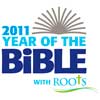To mark the 400th anniversary of the Authorised Version of the Bible in 1611, Malcolm Guite, an expert on the language of the period, has written a series of articles on well-loved passages
 Archbishop Rowan Williams, in a New Year message celebrating this quatercentenary year of the Authorised Version, said: ‘When we try to make sense of our lives and of who we really are, it helps to have a strongly-defined story, a big picture of some kind in the background. As the King James Bible took hold of the imaginations of millions of people in the English-speaking world, it gave them just that – a big picture, a story in which their lives made sense.’
Archbishop Rowan Williams, in a New Year message celebrating this quatercentenary year of the Authorised Version, said: ‘When we try to make sense of our lives and of who we really are, it helps to have a strongly-defined story, a big picture of some kind in the background. As the King James Bible took hold of the imaginations of millions of people in the English-speaking world, it gave them just that – a big picture, a story in which their lives made sense.’
There could be no bigger picture than the one at the start of the Bible: ‘In the beginning God created the heaven and the earth…’ As we read on, caught up in the simple, yet elevated and resonant language, the persistent rhythms, the beautiful echoes and repetitions that move us through the days of creation, we are shown that we are part of a greater story. We are reminded that the earth we live in is not just a quarry to be excavated, an ‘environment’ to be exploited, but a garden to be tended. These words teach us that the earth is not random dead stuff to be seized as an asset and fought over in our wars, but the rich soil from which we are taken, to which we will return, and for which we are responsible to the living God in whose image we are made.
It must have been an awe-inspiring moment, raising hairs on the back of people’s necks, when these opening words of the Scriptures were read aloud for the first time in Stationers’ Hall in London, as the assembled company of translators gave their assent to this translation, verse by verse. The King James Version reads aloud so well because it was designed to be read aloud! Not a verse of it was passed for approval before it had been read. The translators were right to take this approach, for the original context of these words in Hebrew, coming down to us from oral sources, must have been recital, reverence, and perhaps the rituals of worship. These words were first formed among a people who were inspired to worship not the god of one place or another, of one star or tree or stone, but the God of all, the Lord who created the heavens and the earth.
And if we read these words aloud now, then we are taken into their proper incantatory and poetic meaning, and we will know that they were given by God to answer our deepest questions about life, to give us the ‘big picture’; not just satisfy our curiosity about mechanics and science. There is a place, of course, for proper scientific enquiry into the processes that formed and evolved the material world, a proper enquiry into the ‘how’ questions. But in the last two centuries we have mistreated these ancient Scriptures. We have rifled through them to seize on isolated proof-texts to hurl at one another, pretending that they were answers to questions that those who first formed these words never asked! We have been seduced by our own evolutionary debates into treating this Scripture as though it were some A-level science textbook set up to gainsay Darwin before his time, when really it is about the mysterious goodness that lies behind all nature, however slowly it may have evolved.
When St Jerome made his great translation of this text into Latin, the common language of his day, he said that it was written as poetry and not history. By which he meant it contained not less, but more, truth than a literal narrative. He went on to point out that you could not mistake the six ‘days’ of creation for a mere period of 24 hours, since the sun and moon by which we measure our short days do not even appear until the fourth ‘day’, and because a thousand ages are even as a day in the sight of God. Lancelot Andrewes, who supervised this translation, found the deepest way to read it, and in his private prayers for each day of the week he begins with the appropriate verse of Genesis, thanking God for the part of creation celebrated on that ‘day’; a day for light, a day for the firmament, a day for the sea and all its creatures, a day to praise God for the herbs and green things on the earth, a day to thank him for the animals. If we could recover that slower, prayerful, meditative reading of this ancient text, we might find that it prepares us spiritually for the deep challenges in caring for our environment and treading more lightly on the earth that lie ahead of us.
You are welcome to reproduce this article within your church or organisation.
Please ensure that the copyright line 'This resource is taken from www.rootsontheweb.com and is copyright © ROOTS for Churches Ltd 2011.' is included.
You can find out more about the Year of the Bible on the website www.2011trust.org.
 Go to index of all ROOTS
Go to index of all ROOTS
Year of the Bible 2011 material